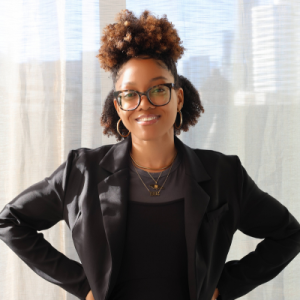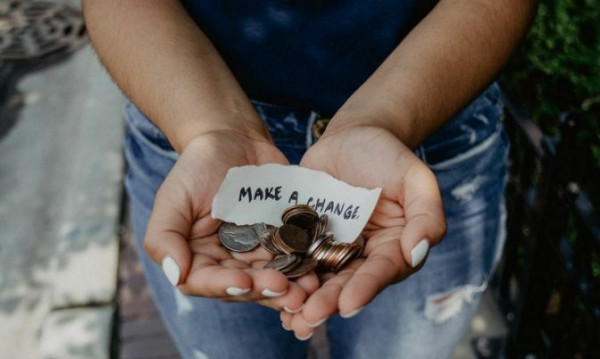Like many Canadians, I didn’t learn about money in school or from my parents so I didn’t understand it. I started working at 18 years old and any time I got a job, I would start with no money and leave with no money. I would spend my entire paychecks on food and clothes and be broke within two days. While my college classmates were constantly travelling, I never had the money to do so. I assumed their parents were funding their trips, but in reality, they were saving money and putting it towards their goals. I lived at home and I had very low expenses but I was living paycheck to paycheck. I was comfortable.
I often had to ask my parents to help me buy a metro pass here and there but I was okay with that. Until one day, I wasn’t. One wake-up call was when I worked in the Northwest Territories from October 2013 to June 2014, landing a substitute teacher job for a few months. I came back to Toronto with $15,000. I felt like I was floating but by the end of that summer, I had empty pockets - again. This cycle would continue until I became sick and tired of being broke. I was tired of feeling financially unattractive to myself. I’d worked all of these years and had absolutely nothing to show for it.
Who can relate?
My lack of independence started bothering me. This feeling eventually spawned an urgency to change, which helped me find my financial fairy godmother through social media.
The first thing that had to change was my money mindset. Luckily, I didn’t have polarizing beliefs about money or a negative relationship with money; I simply didn’t know how it worked. My newfound advisor helped me understand the foundations of money: that it’s a tool and I control where it goes. She taught me that cash flow determines your financial abilities and that my relationship with money would make or break the money I made. She helped me set goals based on what I needed, like an Emergency Fund and what I wanted, like a Fun Fund.
{https://www.instagram.com/p/DAMDbgYRX56/}
My first goal was to save an Emergency Fund of $10,000 in 1 year. I ended up saving $10,000 in just 5 months! I want to highlight something here: I’ve made great money before but I didn’t have the mindset to support it, which is why I ended up with $200 to my name. Saving this much money showed me that I could change my life if I changed my habits. I continued to make money moves like investing $25,000 in real estate and stocks and increasing my credit score from 476 to 750 in 6 months. Here’s how I did it:
1. I found a financial professional who cared about me, beyond money. She got to know me, my goals and dreams. She taught me the foundations of money and helped me improve my money management skills.
2. I had a plan and was connected and committed to it. I had the education and guidance to set the foundations: Life Insurance, an Emergency Fund and Investments. I knew that this would give me peace of mind.
3. I cut out Uber rides, food delivery, and shopping for six months straight and saved 75-80% of my paychecks.
4. I constantly checked in with my advisor to stay focused. There was zero opportunity to lose sight of my goal.
5. To improve my credit score, I started making two payments per month instead of one. This helped my score increase faster.* Results not guaranteed.* I used my credit card to pay my phone bill and make monthly miscellaneous purchases.
It truly starts in the mind so here are some often-overlooked practical tips to help you improve your money management skills:
- Money Mindset: Build a solid relationship with yourself. Your relationship with 'YOU' impacts your relationship with money. Increasing your self-confidence directly affects your money management skills and your ability to make sound financial decisions. Learning the foundations of finance empowers you and changes how you feel about money.
- The Power of Time - Start Now: Time can be your best friend or biggest enemy. It’s expensive to stay idle, so you must move. The longer you wait to change, the longer it takes to build your savings, reduce your debt etc. You don’t have to be in a specific position to get help and you don’t have to have a certain amount of money to start investing, for example.
- Taking Action: Information is useless if you don’t use it. Learning something new is great, but you will stay stuck if you don’t apply it. The first step is often the hardest but the destination doesn’t get any closer until you take that first step. Repetition = Habits = Identity = Lifestyle. Big results come from the compounding of little habits and small changes.
I’ve built a career by eliminating the fear of finance, teaching people how money works and empowering folks to address their financial needs. Let’s connect!

 By
By 





